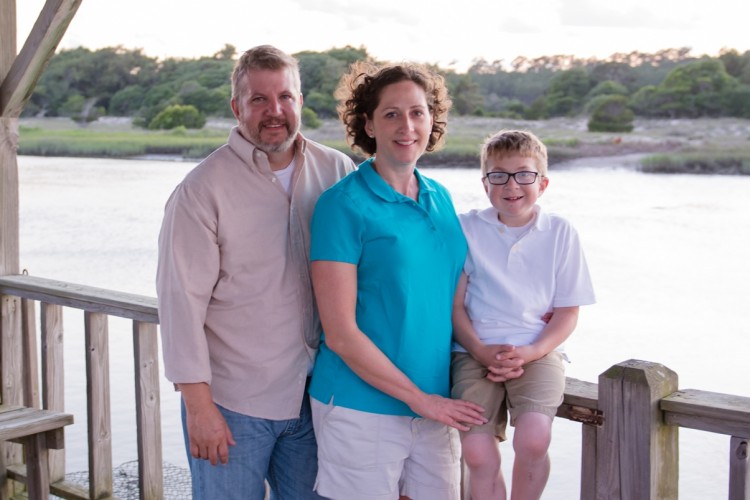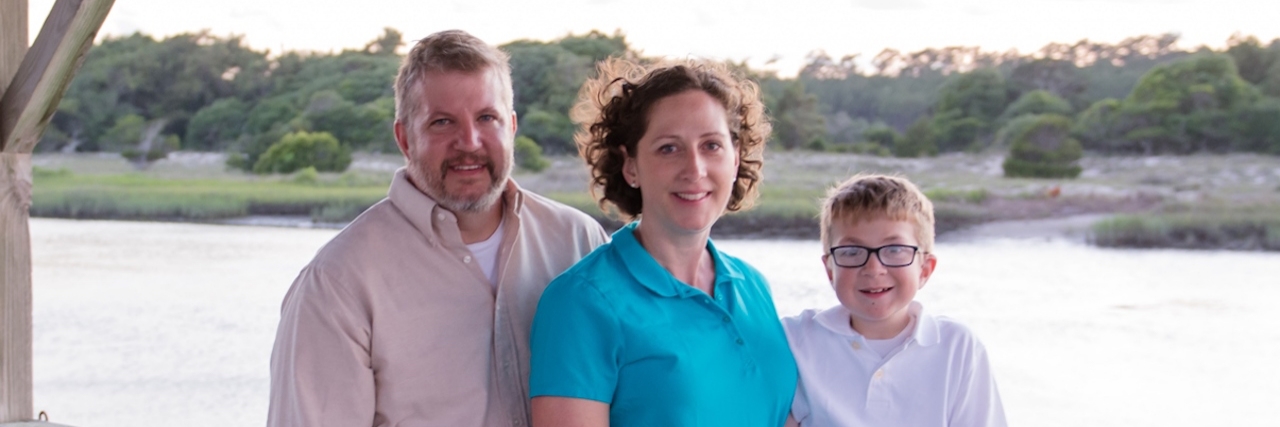“Don’t look it up on the Internet.”
That became a standard part of our explanation as we began to spread the word among family, friends, and our community about our son Gil’s diagnosis. All the information out there about Hurler syndrome (MPS I) in 2005 seemed only to speak to the most crushing and dire aspects of the condition. Was it serious? Yes, it absolutely was serious. It still is. But the reality is that the limited information that was available to us in those first fragile steps along this journey did little to provide us with any hope. Hope was suddenly in short supply and yet it was exactly what we so desperately needed. As difficult as the long search for a diagnosis had been for Gil, finally receiving it officially just a few weeks after his first birthday was even tougher. We were numb. We felt alone. We drove from the hospital in Charleston, South Carolina to our home in Georgetown with our heads swimming.
Since those first days into this new life 11 years ago, we have learned much as a family. As a result, I now realize that a lot of what we have learned had to be lived to be learned. We could not have read it on the Internet and understood it or accepted it — even if it had been available in 2005. We had to go through the trials, learn the ropes by hand, and see ourselves repeatedly tested in the crucible of caring for a child with a serious medical condition. Yes, I still have some conflicted feelings about what was and was not available to us when we were first learning words like mucolpolysaccharidosis, alpha-L iduronidase and glycosaminoglycans. In all fairness, however, I just don’t think what I really needed at that time was a viable option.
I once played around with the thought of going back in time as I am now to talk to the younger me just after Gil’s diagnosis. What would I say? What could I offer that version of myself that would have helped in any way? Would I have simply told myself that Gil would ultimately survive the bone marrow transplant that saved him, but nearly took him in the process? If so, would that have deprived me of some of the most painful yet formative moments that have made me who I am today? I felt some of the deepest and most primal feelings I have ever known through the darkest days of Gil’s many treatments.
So in retrospect, I would not want to deny myself that experience even to shield my younger self from pain. Those moments deepened my love for my child and stretched my own emotional capacity. They also let me know that I can endure the wide spans of emotional highs and lows this journey provides. That has been some crucial knowledge for me during the ensuing 10 years. If my wife and I hadn’t gone through every day of the last 10 years just as we have, we would not have the relationship we have today. We would not have the comfort, implicit trust or incredibly deep love for one another that we have. So as painful, terrifying and just flat-out trying as it has been at times, I have to resolve that I would not change it, even if I could.
All that said, maybe a handy little guide to this life as the parent of a child with a rare disease would be great. But I wonder what could it really tell me. It could tell me to breathe normally along the way. That would have come in handy at times. It could tell me to treasure my spouse because there is no one else with whom I could ever imagine taking this journey. The guide might also be able to tell me that even after so many surgeries we’ve lost count, it will still be emotional for us when they take him back for one more. It might also mention that’s just as it should be. But could it tell me that in his eyes, his mother would be his comfort and I would be his protector? Could a guide tell me he’ll have my quirky sense of humor and my chatty nature? Is there any guide to prepare me for the way I feel when he’s tucked his head up under my chin while I read to him before bed? No, I don’t believe any such guide exists, or even could.
Those are the things you just have learn as you go. But take heart! They are not only the stripes you earn, they are your rewards as well. But there are few rewards as great as when he calls me back into his bedroom for one more hug after I’ve already tucked him into bed. “I love you, Daddy,” he’ll say. That’s all the reward I’ll ever need, and nothing I read 10 years ago could have prepared me in any way for how much it means to me today.

The Mighty is asking the following: Write the article you wish you’d found the first time you Googled your or a loved one’s diagnosis. If you’d like to participate, please send a blog post to community@themighty.com. Please include a photo for the piece, a photo of yourself and 1-2 sentence bio. Check out our Submit a Story page for more about our submission guidelines.

